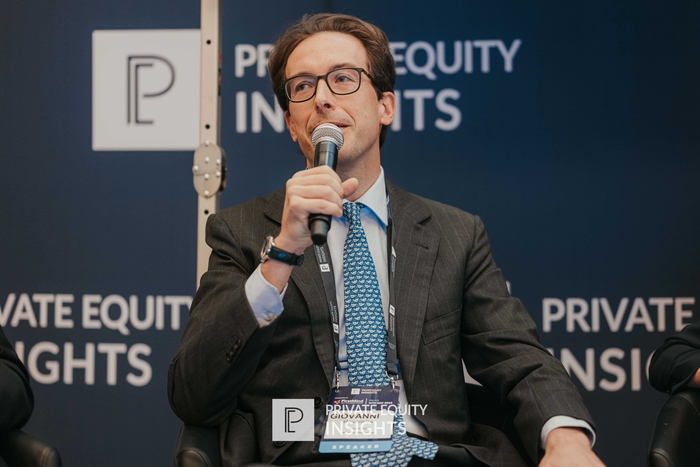Private Equity Insights is one of the most prestigious conferences in the private equity industry, where experts come together to discuss key private equity issues and share valuable experiences. Here, Jannick Hunecke (Member of the Board of Management of Deutsche Beteiligungs AG) and Giovanni Revoltella (Managing Director of the Italian subsidiary DBAG Italia s.r.l.) spoke about two of the most pressing questions in the sector: how can attractive divestments be effected in challenging market situations and what makes a strong advisory board?

What makes a strong advisory board?
Generally speaking, advisory board members should share the company’s objectives. Ideally, they should have vast experience in the sector and, most importantly, this experience should complement that of the management board. Extensive experience on advisory boards is another prerequisite. In addition to the necessary hard skills, this involves soft skills such as the ability to deal with executives and the political savvy needed to represent shareholders’ interests. It is also very useful to identify candidates that can act as “sparring partners” for the management board.
How do diverse advisory boards benefit companies?
When selecting suitable advisory board candidates, DBAG pays great attention to diversity, which has been shown to be a key factor driving successful companies. However, having diversity of opinions is even more important than gender or ethnic diversity. After all, companies – their advisory board included – thrive on having a wide variety of opinions and a culture of open discussion. This does not mean, however, forcing difficult discussions, but rather pushing in the right direction and paving the way for progress and success. The rule here is always to challenge the company’s management just a little. Our experience shows that, the more professional a management team is, the more they will welcome this approach.
What role does artificial intelligence play in business divestments?
Artificial intelligence (AI) goes far beyond anything the world has ever seen. Current instances of AI tools being used in DBAG’s day-to-day business include automating processes to make them more efficient. As far as potential uses of AI are concerned, we need to be aware that we are only at the start of a journey with an unknown course – and that there will be no end of innovations in the future.
Despite all this, private equity is a people business. Financial investors often have dealings with entrepreneurs who originally plotted out their business plans on a drawing board and still view them as their life’s work. This means that not only rational but also emotional factors play a decisive role here. Of course, divestment processes also involve technical elements such as due diligence or lengthy contracts, but at the end of the day, it is about two or more parties who want to come to an agreement. So, AI is not yet a factor driving the successful divestment of equity holdings, but it does have the potential to become a key tool in this process.
What is the outlook for the next twelve months?
We expect significant investment proposals in the months to come, especially since a backlog of M&A transactions has accumulated since 2023. In addition, the situation on the capital markets has visibly recovered – as is also evident from stock market developments – and because inflation is relatively stable, no further rate hikes are on the horizon. Furthermore, the private equity sector’s available funds for investment – also known as dry powder – amounted to just under 2.6 trillion US dollars in 2023 (1).This means that there are available funds waiting to be invested on the one hand and attractive companies undergoing major transformation (including digitalisation and sustainability measures) on the other. This level of transformation requires extensive resources and expertise – something private equity investors can bring to the table. There are also attractive opportunities in private debt. Given that many companies were financed at low interest rates and now need follow-up financing, private debt may come in handy. Like private equity, it is “smart money” that can leverage its investors’ expertise and networks.
Photo credits: Private Equity Insights/Unmask Photography
(1) S&P Global Market Intelligence


 Newsletter
Newsletter
 Contact
Contact
 Downloads
Downloads






